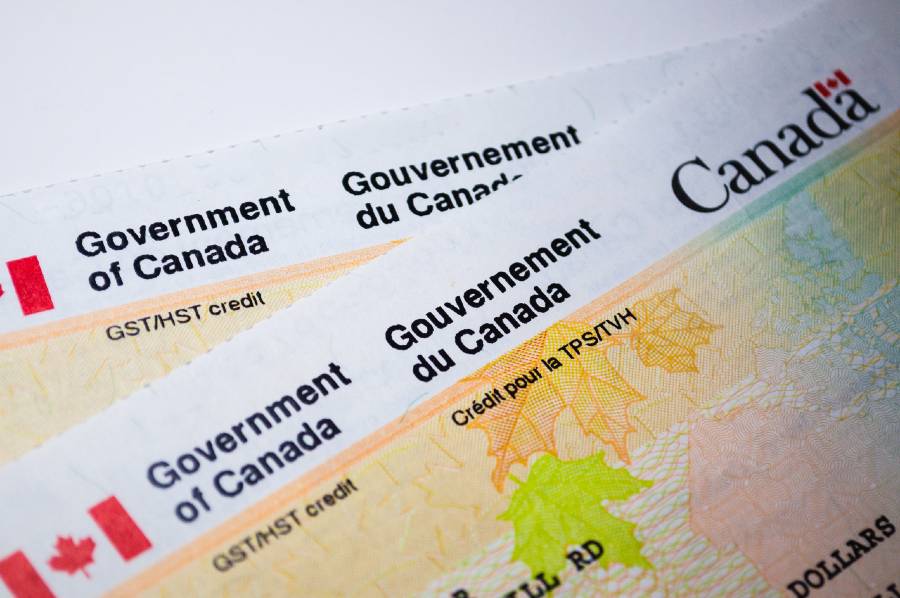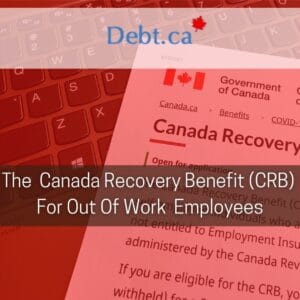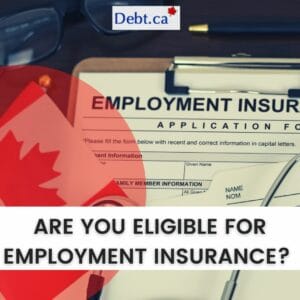The dire nature of the pandemic meant that the federal government had to act quickly. They created the Canada Emergency Response Benefit (CERB). This benefit gave financial support to employed and self-employed Canadians affected by COVID-19. CERB benefits helped more than 9 million workers and their families stay afloat. Now, some of these people are receiving letters about CERB repayment.
The CERB program was implemented so fast that not everyone was clear on the eligibility requirements for receiving benefits. On top of that, to speed up the implementation the Government of Canada decided to use an attestation approach where Canadians applied on their own accord without any review beforehand. This led to many Canadians receiving the payments even though they were ineligible.
The CRA and Employment and Social Development Canada (ESDC) are now reviewing records to identify those that were ineligible. The government is now asking those people for repayment.
Who’s Being affected by CERB Repayment?
You need to repay the CERB if you:
- Earned more income than expected while you received CERB
- Received an overpayment of CERB benefits
- Didn’t meet the income eligibility criteria
Did you Qualify for CERB in the First Place?
Let’s back up and review the eligibility criteria for CERB. Those funds existed for employed and self-employed Canadians affected by COVID-19.
To eligibility requirements for CERB were:
- Involuntarily out of work for reasons related to COVID-19
- Eligible for Employment Insurance regular or sickness benefits
- All out of EI benefits
- At least 15 years old
- Living in Canada
- Earned at least $5,000 in 2019 or in the 12 months before applying.
Did You Earn Money While Collecting CERB?
If you earned more than $1,000 for a period of at least 14 or more consecutive days within the 4-week benefit period of your claim then you were ineligible.
What Happens if You Owe?
If you owe money to the CRA from CERB, you have probably received a letter. The letter is called a Notice of Redetermination or Notice of Debt. It will explain your repayment options. These include:
1. Pay in Full
This is the ideal option. If you can, pay the government back in full as soon as you can. There are a few ways to pay:
- If you still have the original CERB cheque, you can return the cheque by mail.
- If you were paid by direct deposit or don’t have the original CERB cheque, you can pay
- Online through your CRA account.
- Online banking through your financial institution. Under “Add a payee” select “Canada emergency benefit repayment.”
- By mail. You can send a cheque or money order to the CRA.
2. Make Payment Arrangements
If you can’t repay CERB all at once, not to worry! Contact the CRA at 1 (800) 959-828 to ask what your options are.
3. Consider a Consumer Proposal
If you absolutely cannot afford your CERB repayments, the government might review your case under the financial hardship provision.
A consumer proposal is one possible last resort option. This is a debt settlement that a licensed insolvency trustee can arrange for you. The trustee arranges an agreement with your creditors for you to pay back a portion of what you owe, extend your deadline, or both. You, typically, end up paying back less debt than you owe. This can save you a lot of money, possibly 70 or 80 percent of your debt. Though you will continue to make payments you’ll get rid of your debt sooner.
4. Consider Bankruptcy
Filing personal bankruptcy is the absolute last resort for people who can’t repay debt. If your debts – including CERB – are impossible for you to manage. If you decide to go this route, beware that there is still uncertainty about whether CERB debt can be discharged under bankruptcy.
Remember: Only consider the consumer proposal and bankruptcy if you absolutely cannot repay your debt. Once you file, there are long-term consequences you’ll have to face like a low credit score and higher interest rates.
NOTE: Pay the Right People
Beware of CERB repayment scams. Be sure you’re sending your repayment to the CRA, not to a scammer. Some legitimate e-mails look like scams, and some scams look legitimate. Check this CRA link for tips on avoiding scams.
Do CERB Repayments Affect Your Taxes?
Your CERB repayment might affect your taxes. Your repayment should appear on your T4A slip for the year you paid it back. How CERB affects your taxes depends on when you pay it back.
If You Don’t Pay
There are serious consequences for people who don’t repay their debts to the federal government. In extreme cases, the CRA collects by:
- Garnishing wages. If you have a job, your employer might have to send 50% of your wages to the CRA (instead of to you).
- Garnishing your bank account.
- Seizing future tax refunds and credits.
- Registering a lien against your assets.
- Seizing and selling your assets.
Before the CRA takes this kind of legal action, they will give you a few chances to fulfill your CERB repayment. The CRA will try three times to phone you and write you one warning letter. If you don’t respond, or if you don’t cooperate, collections will begin.
You can avoid this worst-case scenario. The people at the CRA will be reasonable if you communicate with them.
Don’t let debt overwhelm you. Reach out today so we can help you take control of your finances.








